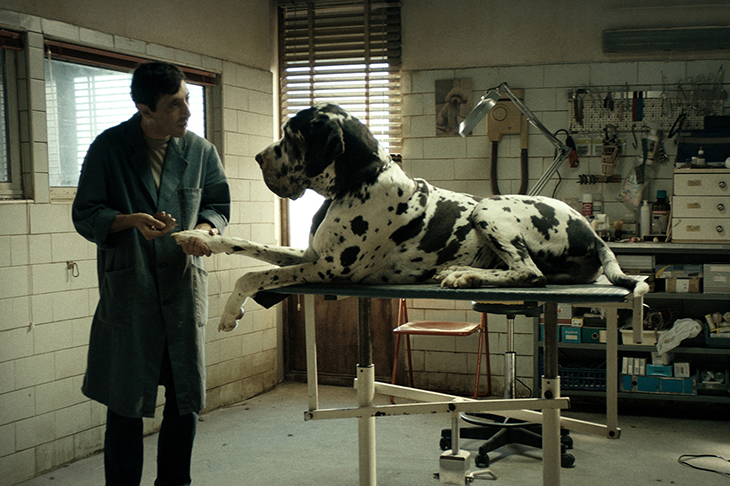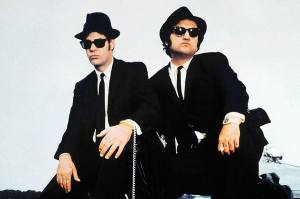Matteo Garrone’s Dogman, which is Italy’s entry for the foreign language Oscar next year, is bleak, unflinching, oppressive, masculine (very), violent (shockingly) and basically everything you’d expect me to hate. Except I didn’t. It is out of the ordinary. It has a magical central performance. It is tense, as you wait for the little man to face down the big man, if he does. Plus there are lots of lovely dogs, which always helps, and none are harmed. Aside, that is, from the yapping chihuahua thrown into a freezer to shut it up. So there is that, too.
Garrone, who is known for the terrific Gomorrah, and also the highly odd Tale of Tales, has set the film in a poor Italian coastal town where the skies are grey, the buildings are crumbling and the playground equipment is derelict. Ken Loach territory, in other words, but with a better diet. (The people have little money but cook proper meals and don’t eat rubbish, I couldn’t help but note.) It’s the story of Marcello (Marcello Fonte), who owns the dog-grooming establishment next door to the cash-for-gold shop. Marcello is childlike, eager to please, not macho in the slightest, and a simple man. He wants to be liked by his neighbours. He is most at home when lovingly tending his canine clientele. He calls them all ‘sweetie’ and there are some wonderful moments, particularly involving a poodle and its quiff and the Great Dane who doesn’t look happy with its pedicure. (I don’t know if it asked for its money back.) He also has a young daughter, Alida, whom he adores. They live separately, as he has split from her mother, but they enjoy their scuba-diving trips, funded by his business on the side, which is cocaine dealing.
That said, he only seems to deal cocaine to one person, Simone (Edoardo Pesce), and Simone rarely pays him. Simone is the local thug. Simone is the size of a fridge and a brute and half-crazed. Simone has terrorised the neighbourhood to such an extent that the other shop owners discuss having him killed. But Marcello is deeply attached to him, in a way that is never explicitly explained. What is this co-dependency? In this ultra-male community, is Marcello hungry for alpha-male attention and acceptance? Is he the abused dog who keeps running back to its owner nonetheless? Does he think Simone can be tamed, like the savage pit bull in the opening scene, which has to be soothed before it can be shampooed? Whatever the reason, Marcello allows Simone to lead him to darker and yet darker places. Will he ever break and say: ‘Enough!’?
As the violence escalates, this could have been cartoonish, and it should by rights be cartoonish, but Fonte’s performance is just too wonderful. He won the award for best actor at Cannes and as Garrone has said: ‘Marcello bought to the story his humanity, his sense of humour and, er… his face.’ He has a sunken face and a big, crooked smile. It’s a face that tells its own story. It’s a face you could look at all day unlike, say, Ryan Gosling’s in First Man, which said everything it had to say within two minutes flat. Marcello is not always innocent. Marcello is sometimes complicit. Marcello can be simpering and ingratiating. But it’s crucial that he remains endearing and essentially good. It’s crucial that we know he will try to rescue the chihuahua that’s been locked in the freezer by Simone, even if it means breaking back into the house they’ve just burgled. And Fonte brings all this, and keeps you with him.
The film never spells anything out, but touches on many issues: poverty, drug addiction and the kind of power-mad masculinity that destroys everyone and everything. There are those brief glimpses of Alida, and a small role for Nunzia Schiano as Simone’s old, despairing mother. But aside from that there are no women here whatsoever. The conclusion is shattering, and possibly not redemptive. The only ones to come out of this well, in fact, are the dogs, who nobly do their own thing, as man bites man.
This article was originally published in The Spectator magazine.


















